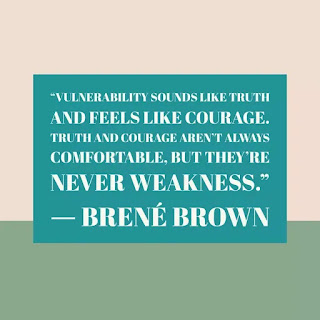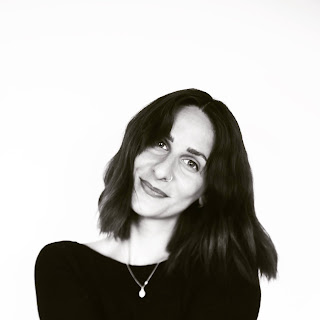Courage, compassion & connection
Helen shared a TedTALK of Brené Brown’s ‘Power of Vulnerability’ and after watching it this morning I can’t help but already feel more connected to my MAPP community. It was so wonderfully reassuring reading responses to the video and seeing everyone wholeheartedly lean into and openly share the discomfort of their vulnerability in order to find courage, be compassionate and feel connected as we start the first term of study.
Brown stated ‘I define connection as the energy that exists between people when they feel seen, heard and valued; when they can give and receive without judgement; and when they derive sustenance and strength from the relationship’
I would be lying if I said I wasn’t daunted by the notion of putting my research and thoughts up for criticism or judgement. Surely finding a community of people with similar interests is a sure-fire way to nourish, articulate and question my ideas that have been waiting to burst out of my brain, right? I mean, humans are inherently social creatures; we are biologically, cognitively, physically and spiritually wired to connect and share! For millions of years we’ve genetically evolved to survive and thrive through the “togetherness” of social groups and gatherings.
Within his book ‘Learning by doing: a guide to teaching and learning methods’ (Gibbs, G 1998) Gibbs, states ‘It is not sufficient to have an experience in order to learn. Without reflecting on this experience, it may quickly be forgotten, or its learning potential lost.’ This made be begin to consider what models of reflection I should use when it comes to sharing on my blog. In fact, it started to make me nervous and question my ability to do so in a constructive and articulate way - How will I strike a balance between my personal perspective/line of reasoning to that of evaluating and scrutinising an experience, project or experiment? VULNERABILITY. It really does circle back to this idea of learning power in embracing vulnerability!
Brown suggests that vulnerability is the core of fear, shame and our struggle for acceptance however it’s also the birthplace of joy, creativity and belonging. Through my study I aim to explore just some of the ways in which we come to form and create ourselves, as a result of our habits, experiences, feelings and beliefs. So starting today, I ask you to join me in embracing vulnerability and diminishing the culture that doesn’t condone mistakes - Let us connect, reflect and share on our successes (AND FAILINGS!) to create a true, lasting, learning platform!



Hello Natasha, thank you for sharing this wonderful determination with our learners community.
ReplyDeleteI was struck by your questioning 'How will I strike a balance between my personal perspective/line of reasoning to that of evaluating and scrutinising an experience, project or experiment?' and your enquiry about the reflection method you would like to adopt.
I have just finished reading 'A handbook of reflective and experiential learning' and I found the quote 'learning how to learn' quite meaningful to me.
As favoring a theorist learning approach (Honey, P and Mumford, A, 2006, The Learning Styles Questionnaire 80 items version) myself, I find uncomfortable to draw representation of my learning out of my practice, the doing. For this reason, I am applying a two-folded strategy to help me navigate through my reflective practice: one side is journaling my achievements adopting a SWOT analysis-like frame, so I can easily come up with the process that leads me to my learning definition; the other is breaking my rules, or better enjoying what comes in this moment, rather than 'studying' sets of endless notions.
Yes, I am feeling vulnerable and exposed to this new model of mind-opening learning, whereas peer exchange, critical thinking, reflective practice are at the core, yet I am striving to trust the process, and as Breme Brown says, there must be some sort of power in it, which I can not see, but it's certainly there.
Hi Paola, ahh thank you for being so open with how you too are feeling at the moment - We are in it together!
ReplyDeleteI love your two-fold strategy! I have actually started journaling at the end of my days - and using this method as a simple starting point to encourage me to 'reflect & dissect'. Albeit a reflection just on my general day this seems to have already been constructive in easing me into analysing my professional practice both past and present.
Just as you have stated that you are 'striving to trust the process' I can already see that through our sharing of just this one subject there has been power in it of which at first we perhaps could not see! Really looking forward to this afternoons session and an opportunity to discuss face to face :)